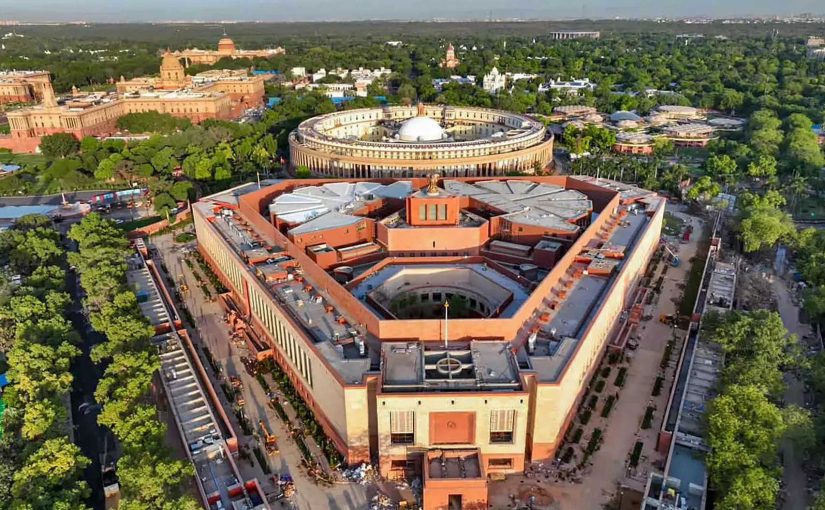Prime Minister Modi was scheduled to hold talks with his Australian counterpart on Wednesday, June 7, 2023. That same evening a group of lawmakers and human rights activists screened the Godhra documentary which explores Modi’s role in the 2002 anti-Muslim violence in Gujarat.
By The Wire Staff
In sharp contrast to all the friendlessness displayed by the Australian Prime Minister Edmund Barton on Narendra Modi’s visit, it’s the MPs of Australia who are insisting on the screening of the BBCs Godhra film in their parliament house
On the day when Prime Minister Narendra Modi will hold talks with his Australian counterpart, the Parliament House in Canberra will witness a special screening of the BBC documentary that explores his role in the 2002 Gujarat riots.
Modi arrived in Australia on Monday evening. He is on the last leg of his three-nation tour.
On Tuesday, he held a rally for the Indian diaspora at Sydney’s Olympic Park along with Australian Prime Minister Anthony Albanese.
On Wednesday, he is scheduled to hold substantial talks with Prime Minister Albanese. That same evening, the Parliament House in Canberra will be the venue for a screening of the BBC documentary. The screening is organised by a group of lawmakers and human rights activists.
The Ministry of External Affairs spokesperson, Arindam Bagchi, had slammed the BBC documentary as a “propaganda piece designed to push a particular discredited narrative”. “The bias, the lack of objectivity, and frankly, a continuing colonial mindset, is blatantly visible,” he said.
After the 40-minute documentary is screened, there will be a panel discussion, which will include Australian Greens senator Jordan Steele-John, Aakashi Bhatt, daughter of former IPS officer Sanjiv Bhatt, and Aakar Patel, former head of Amnesty India.
A report by Australia’s SBS News on the forthcoming event quoted Greens senator David Shoebridge as criticising the de-facto ban on the documentary in New Delhi.
“We’ve made it very clear that Australia has and should have a strong friendship with India, but that friendship should be a friendship of truth,” he said.
He said that Australia should be raising the issue of the deterioration of human rights in India. “We have said repeatedly that the degrading human rights situation in India, that the lack of freedom of press, needs to be an issue that is squarely raised by Australia in its involvement with the Indian government”.
Shoebridge said that if the BBC documentary “can’t be shown in India”, it should be “able to be shown here, right in the heart of a democracy in Australia”.
Mohan J. Dutta, one of the panellists for the screening and Dean’s Chair Professor of Communication at the University of New Zealand, told The Wire that the Indian diaspora “has been a core support base of Hindutva, from organising funds to volunteering for Hindutva organisations and political parties both in India and abroad”.
“Australia is part of this interconnected ecosystem, with far-right Hindutva accounts in Australia playing key roles in Hindutva-linked violence across the diaspora, adversely impacting social cohesion beyond Australia to Aotearoa, New Zealand and Leicester, UK. It is therefore critical at this juncture of Hindutva and global politics that progressive voices in the diaspora consistently speak up against the hate politics of Hindutva, building empirical registers for witnessing the hate, its networked structures, and its dangerous effects,” he added.
Mentioning the organisations who are organising the event, Dutta added, “The Center for Culture-centered Approach to Research and Evaluation (CARE) is honoured to be a part of this collective, drawing on our own work that highlights the harmful health effects of the Islamophobic hate being produced and amplified by Hindutva globally, which we have concerningly found to be much greater in volume than the Islamophobia being spread by white supremacists and working in tandem with white supremacist ideologues.”
The two-part BBC documentary, India: The Modi Question was based on a secret UK government report that claimed Modi, then Gujarat chief minister, had helped foster a sense of impunity during the 2002 riots.
While the documentary was not aired by BBC in India, the Indian government instructed various social media channels to take down several accounts that had posted links.
About a month later, the offices of the BBC in New Delhi and Mumbai were raided by IT authorities. They alleged that irregularities were detected, including non-disclosure of certain remittances as income in India, as well as non-payment of taxes on those remittances. The BBC has denied those allegations.
(With inputs from Kalrav Joshi)
Courtesy: The Wire
